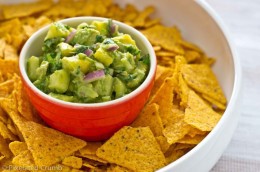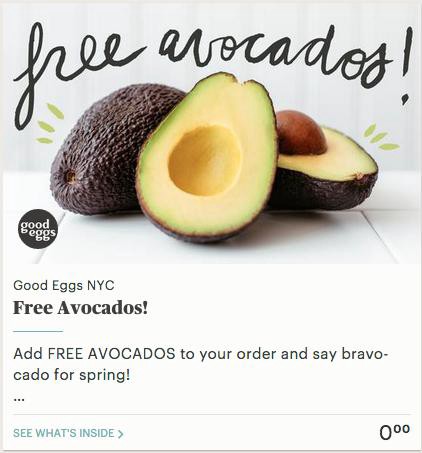Say Goodbye To Your Little Friend (Avocado)

First they came for the almonds, and I did not speak out, because I did not like almonds. Then they came for the avocados, and I said, “Excuse me, what?”
Backing up: as you’ve perhaps heard, California is in the midst of a serious, no-end-in-sight kind of drought. The state waded into denial for as long as it could but it has now begun, at last, with the eye-rolling and foot-dragging of a three year old, to make some lifestyle adjustments. As numerous know-it-alls have pointed out, though, the biggest water hogs are not people or even golf courses, but agricultural products — like almonds.
California needs to reconsider whether it is the best place for almonds to be grown in the face of the state’s water crisis, said the head of one of the world’s largest agricultural businesses.
“It’s almonds versus people,” said David MacLennan, the chief executive of Cargill, when asked at the FT Commodities Global Summit in Lausanne whether almonds would still be produced in California by 2020.
The US state accounts for 80 per cent of global almond supplies and the industry is facing a backlash amid the worst drought in decades.
You can almost hear the trailer now: “In a world where the sun is hot and water is scarce, survival comes down to competition. When nature goes up against humanity, who will emerge victorious? Coming this summer to theaters near you, it’s the thriller that hits so close to home, it may as well be showing in your kitchen: Almonds Versus People. Rated G for everyone, because everyone will suffer.”
Everyone on a lo-carb diet anyway. Like I said, though, I’ve never been crazy about almonds. They’re expensive and not that tasty. Avocados, on the other hand … ? Pillowy, delicious, best-friend-of-vegetarians everywhere? Please don’t take away my avocados.
“The avocado’s native environment is tropical,” Wolk says to me in his office, which overlooks his own modest avocado grove, “and we’re growing them in a desert.” It takes 72 gallons of water to grow a pound of avocados, compared to, for instance, nine gallons to grow a pound of tomatoes. What’s more troubling is that “the issue with water used to be cost,” Wolk says. “Now it’s availability.”
Ken Melban, the director of issues management for the California Avocado Commission, doesn’t see imminent trouble, “but a year from now, if we don’t have significant rain or snowfall, we’ll have to revisit that. Maybe sooner. All bets are off if this continues and continues. We’re living in anxious times here in California.” The problem is hardly limited to his area of expertise — “Ninety-eight percent of California is in a drought condition,” as Melban points out, “so the ramifications are much broader than whether someone can get an avocado in New York City” — but still, if you want to think through what climate change might mean for your daily life, the fate of the avocado is a good way to start.
Nooooooooooooo.
Tell me what to do and I’ll do it. Recycle more? Take shorter showers?
The name avocado comes from the Aztec word ahuacatl, which means “testicle,” so named because avocados typically grow in pairs and hang heavy on the tree.
K, that’s informative, but it’s not helpful.
ground-up avocado seed was once used in a South American folk recipe for rat poison.
If we’re quite through … ? Ok. So seriously, what can be done? Anything? Must we resign ourselves to a guac-free future?
California is not our only source of avocados. In fact, imports, primarily from Mexico and Chile, now make up 85 percent of the avocados consumed in the U.S. year-round. But those countries have avocado issues of their own. In 1990, Chile had fewer than 8,000 acres of avocado trees; now it has more than 60,000 acres, and large avocado growers are draining the country’s groundwater and rivers faster than they can replenish themselves. In Mexico, where avocado farms are so lucrative that avocados are referred to as oro verde, or “green gold,” the problems are even more troubling. Seventy-two percent of the avocado plantations in Mexico are located in the state of Michoacán, and much of the industry there is controlled or influenced by the Caballeros Templarios drug cartel. The extent of the money laundering, extortion, and murder around avocados in Michoacán led one writer to equate avocados to Africa’s blood diamonds, whileothers have adopted the phrase “blood guacamole,” which might sour the mood around the chips at your next Super Bowl party.
Oh good lord in Heaven. I give up.
Wait a minute! What’s the sound? The soothing whisper of a deus ex machina here to save the day — and to tell me not to worry about tomorrow? Yay!!

Guac picture via Pixelated Crumb
Support The Billfold
The Billfold continues to exist thanks to support from our readers. Help us continue to do our work by making a monthly pledge on Patreon or a one-time-only contribution through PayPal.
Comments